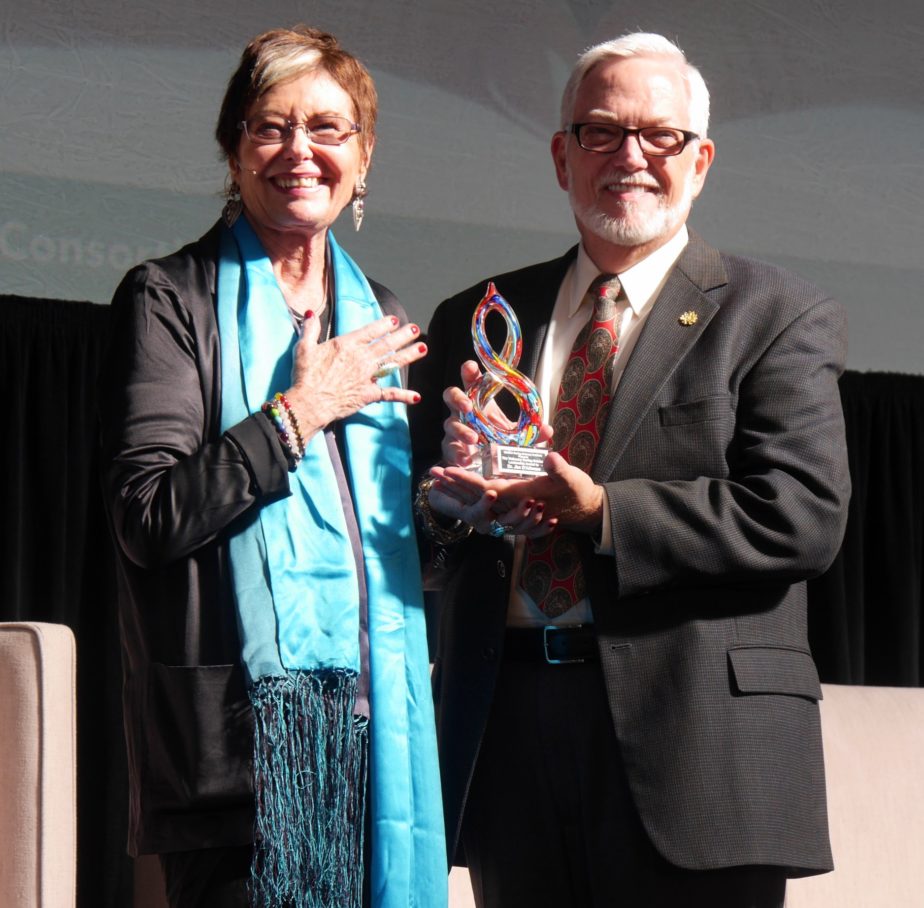Boulder, CO – June 2019 – Watson Caring Science Institute (WCSI) and Dr. Jean Watson are proud to present ….
Dr. Jim D’Alfonso, executive director for professional practice, leadership development and research with Kaiser Permanente in Northern California and Adjunct Faculty at the University of San Francisco School of Nursing and Health Professions was honored by celebrated nurse theorist Dr. Jean Watson as the 3rd recipient of the prestigious Visionary Caring Science Leadership Award. Previous honorees include Dr. Earl Bakken (2008), Founder of Medtronic and inventor of the first battery operated pacemaker and Dr. Anne Boykin (2009), theorist and dean emeritus of Christine E. Lynn School of Nursing at Florida Atlantic University.
Over the past 20 years, Dr. D’Alfonso’s distinguished scholarly work has focused on the integration of theory-guided leadership and clinical practices aimed at health systems transformation and renewal from the inside-out. Jim was appointed founding Chief Operations Officer and Chief Nurse Executive for the Watson Caring Science Institute in 2008. Throughout his tenure, Jim’s visionary leadership was instrumental in the creation and expansion of the International Caritas Consortium (ICC), Caritas Coach Education Program (CCEP), WCSI Affiliates Model, the WCSI International Research Database, the Watson Caritas Patient Score (WCPS), The Million Nurse Campaign (2010), WCSI’s website, as well as Caritas HeartMath Programs and Human Caring workshops conducted worldwide. In 2015, Dr. Jean Watson recognized Jim with an honorary doctorate in Caring Science for his lifelong contributions to the advancement of Caring Science in education, clinical practice, and research. Jim has continued to advise, consult and support WCSI over the years and in 2019 was appointed to serve as a member of its Board of Directors.
WCSI is dedicated to help the current healthcare system retain and nurture its most precious resource, caring professional nurses, while preparing a new generation of health practitioners. The practical outcome: optimum caring-healing for the public, reduction of high nurse turnover, and decrease of costs to the system.

